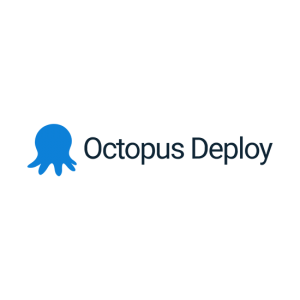Introduction
In today’s fast-paced software development landscape, efficient and reliable deployment processes are crucial for successful project delivery. This is where Octopus Deploy and Jenkins come into play. Octopus Deploy is a deployment tool that simplifies the release management process, while Jenkins is a widely used continuous integration and continuous delivery (CI/CD) platform. Together, Octopus and Jenkins create a powerful duo that streamlines deployment workflows, improves collaboration, and enhances overall DevOps practices.
Understanding Octopus Deploy
Octopus Deploy is a deployment automation tool focusing on the entire deployment lifecycle. It provides a platform for managing and automating releases across different environments. Octopus Deploy supports various deployment targets, including virtual machines, cloud platforms, and containerized applications. With its intuitive web interface, Octopus simplifies configuring deployment steps, managing variables, and handling complex deployment scenarios.
Harnessing the Power of Jenkins
On the other hand, Jenkins is a popular open-source CI/CD platform known for its flexibility and extensibility. It helps developers to automate the build, test, and deployment processes, integrating with various version control systems, build tools, and testing frameworks. Jenkins provides a vast ecosystem of plugins that extend its functionalities, making it highly customizable to fit specific project requirements.
Integration Benefits: Seamless CI/CD Pipelines
You can create end-to-end deployment pipelines by integrating Octopus Deploy with Jenkins. Jenkins handles continuous integration, building and testing the code, while Octopus handles deployment. This integration allows for a smooth transition from development to deployment, ensuring reliable and consistent releases.
Automated Release Management
Octopus brings powerful release management capabilities to Jenkins pipelines. With Octopus Deploy, you can define release templates, manage versioning, and control the deployment process. This level of automation reduces manual errors, minimizes downtime, and improves overall release reliability.
Environment Management
Octopus Deploy provides a comprehensive environment management system that complements Jenkins’ capabilities. With Octopus, you can define and manage multiple deployment environments, including development, staging, and production. This integration ensures consistent configuration across environments and allows for easy environment-specific customization.
Variable Management and Configuration
Octopus Deploy offers robust variable management, allowing you to define and manage configuration settings specific to each environment. Integrating Octopus with Jenkins allows you to seamlessly pass variables between the CI/CD pipeline stages and leverage them during deployments. This flexibility enables environment-specific configuration and reduces the need for manual intervention.
Collaboration and Visibility
Octopus and Jenkins integration promotes collaboration among development, operations, and quality assurance teams. It improves a centralized platform where teams can collaborate on deployments, track release progress, and monitor deployment logs. Octopus and Jenkins offer extensive reporting and notification capabilities, ensuring stakeholders stay informed about the release status.
Scaling and Extensibility
Octopus Deploy and Jenkins are highly scalable and extensible. Octopus supports multi-tenant deployments, making it suitable for large-scale enterprise deployments. Jenkins’ plugin ecosystem allows you to integrate with various tools and technologies, extending its functionality to meet specific project requirements. This scalability and extensibility make Octopus and Jenkins a good fit for organizations of all sizes and complexities.
Conclusion
Octopus Deploy and Jenkins form a powerful alliance in DevOps and deployment automation. Together, they streamline the deployment process, improve collaboration, and enhance the overall efficiency of software delivery. By integrating Octopus and Jenkins, organizations can achieve faster release cycles, improved reliability, and reduced manual efforts. As the software development landscape evolves, leveraging the capabilities of Octopus Deploy and Jenkins becomes increasingly vital for successful DevOps practices.




